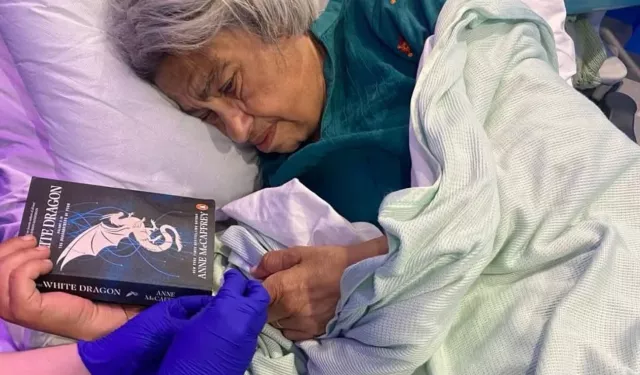Egyptian academic Laila Soueif resumed a partial hunger strike on Saturday, ending over a month of complete food refusal she had maintained in protest at the continued detention of her son, prominent political activist Alaa Abdel Fattah, despite the expiry of his prison term last September.
Soueif, 69, agreed to switch to a limited-calorie intake following repeated appeals from friends and relatives, including human rights lawyer Khaled Ali, who represents the Abdel Fattah family.
In a message posted to Facebook, Ali urged Soueif to reconsider the full hunger strike and “give us more time to try again and again, until Alaa is free and in your arms.” He praised her perseverance, calling her protest “an inspiration” and said her message had been widely heard.
Soueif had previously transitioned to a partial strike in early March after 156 consecutive days of complete fasting, a period that led to her hospitalization at St. Thomas’ Hospital in London on Feb. 25. On May 20, she announced she would resume a full hunger strike after what she described as the authorities’ failure to act on any promises to release her son.
On Saturday, Sanaa Seif, Abdel Fattah’s sister, announced on Facebook that their mother had resumed the partial strike. “She is now on a 12-hour glucose drip. We discussed the structure of this new hunger strike with her doctors,” Seif wrote.
Seif said her mother aims to restrict her intake to 300 calories per day. However, doctors warned that her muscle mass is severely depleted and that she had collapsed twice the day before. They advised increasing her intake to 600 calories daily, equivalent to two bottles of protein shake. “Mum said she’d consider it—after a lot of pressure from me—but for now she’s sticking to 300,” Seif added.
Soueif has also suffered fluid retention and swelling. According to Seif, her mother’s face and hands were significantly swollen before receiving intravenous glucose, but the edema has since subsided.
Alaa Abdel Fattah was arrested on Sept. 28, 2019, and later sentenced to five years in prison by Egypt’s Emergency State Security Court in Dec. 2021 on charges of spreading false news. His family and lawyers argue that he should have been released at the end of his term in Sept. 2023, as Egyptian law requires pretrial detention to count toward time served.
However, authorities have calculated his sentence from Jan. 3, 2022—the date of the military ruler’s ratification of the verdict—arguing that as a state security case, the verdict was not enforceable until that point.
Under Article 482 of Egypt’s Law of Criminal Procedure, prison terms must be calculated from the date of arrest, with deductions for pretrial detention. Article 484 states that in cases involving multiple sentences, the deduction should be applied first to the lighter sentence.
